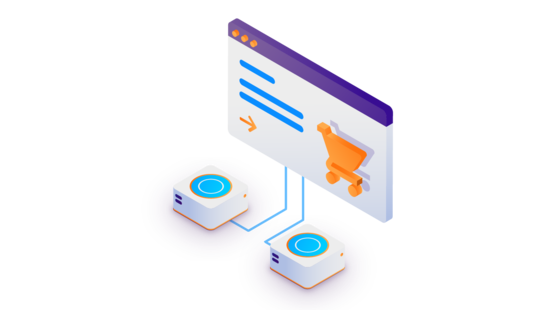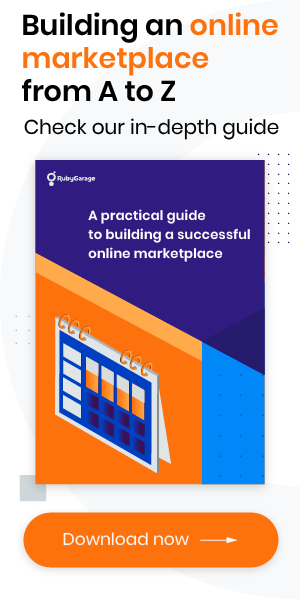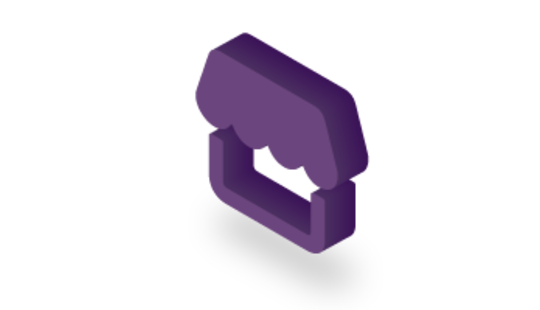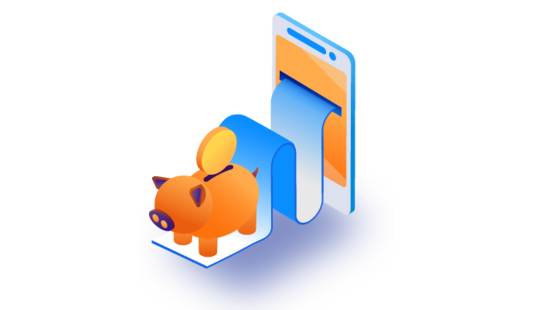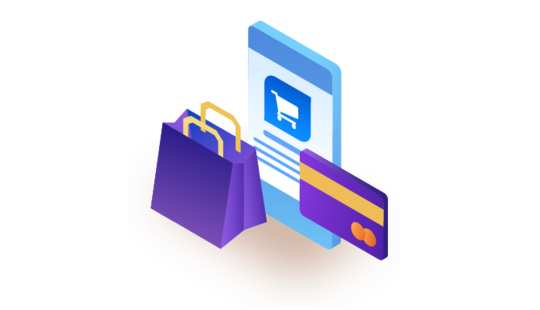-
Product Management
Software Testing
Technology Consulting
-
Multi-Vendor Marketplace
Online StoreCreate an online store with unique design and features at minimal cost using our MarketAge solutionCustom MarketplaceGet a unique, scalable, and cost-effective online marketplace with minimum time to marketTelemedicine SoftwareGet a cost-efficient, HIPAA-compliant telemedicine solution tailored to your facility's requirementsChat AppGet a customizable chat solution to connect users across multiple apps and platformsCustom Booking SystemImprove your business operations and expand to new markets with our appointment booking solutionVideo ConferencingAdjust our video conferencing solution for your business needsFor EnterpriseScale, automate, and improve business processes in your enterprise with our custom software solutionsFor StartupsTurn your startup ideas into viable, value-driven, and commercially successful software solutions -
-
- Case Studies
- Blog
The Future of Data Marketplaces [Infographics]
One of the best things to sell today is your data. Modern data marketplaces are taking off, allowing not only large enterprises but also individuals to monetize their data. If you want to know why data marketplaces are going to hit the jackpot in the next decade, how they work, and what their revenue streams are, then keep on reading.
What’s a data marketplace?
As the name suggests, a data marketplace is a platform where entities buy and sell data. Data marketplaces sell different types of data from various sources. There’s no single way to structure data for sale. Data providers may offer data in specific formats for individual customers.
We can define three main types of data marketplaces based on types and sources of data:
Personal data marketplaces
Personal data marketplaces allow individuals to sell their data on their own terms. This data can be anything from a current location to an email address or restaurant preferences. Users decide what data they’re ready to sell and set the price they believe is fair for that particular piece of information. For instance, health and financial data may cost more than geolocation data or movie preferences.
Personal data marketplaces usually offer a lot of features for manual data input and provide users with a mobile version of the app for convenience.
If you want to find out what personal data marketplaces look like, you can check out Datum, DataWallet, and Fysical.
Business data marketplaces
Business data marketplaces use a business-to-business (B2B) model of data exchange.
The distinguishing feature of such marketplaces is a large amount of aggregated, well-structured data. Data on business data marketplaces can be immediately used for marketing, sales, and business intelligence purposes. Ocean Protocol, Crunchbase Marketplace, and DataGuru are great examples of business data marketplaces.
Sensor data marketplaces
Sensor or IoT data marketplaces provide buyers with data collected from smart devices. The main feature of sensor data marketplaces is the ability to purchase real-time data feeds and datasets from remote devices.
Real-time data from sensor data marketplaces helps companies understand consumer behavior, improve sales, and build better marketing strategies.
Streamr, Dawex, and QueXopa are examples of sensor data marketplaces where buyers can purchase data collected with IoT devices.
Why data marketplaces are taking off
Big data is an up-and-coming niche in the global market. Let’s take a look at the latest numbers to see if it’s worth your time.

Today, a lot of companies collect tons of data they can’t process. Sometimes, companies don’t even need all the data they have.
Big data marketplaces allow enterprises (and average people) to get revenue from their data and allow businesses to buy the information they need.
Data marketplaces are win-win tools. Here are the benefits they provide:
Benefits for sellers
- Make money. Individual sellers can easily monetize information they’re ready to share. Companies and enterprises can monetize data they collect but don’t use or don’t have the facilities to process.
- Improve goods and services. By providing data to businesses and organizations, sellers can expect to get better, more personalized services in the future.
- Help companies and organizations. A lot of young companies and startups can emerge thanks to the data collected and sold on a data marketplace.
Benefits for buyers
- Get high-quality data. When users purchase information on a data marketplace, they get dependable, segmented, and relevant data they can use right away to meet their business needs.
- Spot trends, opportunities, and challenges. High-quality data from big data marketplaces allows users to better understand their businesses and the business environment, build sales and marketing strategies, and map the direction for future development.
- Spend more time processing data than collecting it. Buyers can easily process well-structured data to get the insights they need.
- Power analytics or apps. Modern data marketplaces allow developers to easily transfer their data to various analytics tools and platforms or power apps and software systems. For instance, Microsoft Azure DataMarket allows developers to access data via Excel and PowerPivot.
Best data marketplaces
Now it’s time to take a look at the most famous data marketplaces.
Microsoft Azure DataMarket
Microsoft Azure DataMarket was launched in 2010. This business data marketplace allows content providers to sell their data via several different offerings.
Data sellers can set the details of their offerings, including the terms of use, pricing model, and price.
Microsoft Azure DataMarket offers all sorts of information to power applications and analytics. The platform provides data through a uniform interface in a standard format. Developers can easily access this data via Excel, PowerPivot, Tableau, and other OData consumers.
Azure DataMarket uses a simple business model. It charges a 20% commission on all paid data sets.
Factual
Factual was launched in 2007. This personal data marketplace is focused on geolocation data, business listings, satellite data, point-of-interest data, and mobile app usage data.
Customers use Factual’s insights, targeting, measurements, and data enrichment products to build and execute digital advertising strategies, understand audiences, measure success, and support innovative business solutions.
Factual data powers location-based campaigns for more than 6,000 companies all over the globe. One of their most famous customers is Facebook.
This platform doesn’t provide any data for free and has a fixed price for all data sets.
Qlik DataMarket
Qlik DataMarket provides current and historical weather and demographic data, currency exchange rates, and business, economic, and sociological data.
The Qlik platform offers various analytics tools and platforms that work with a customer’s own data and with purchased data to provide a full picture of internal and external environments.
Qlik offers some data sets for free. For access to all other data, customers have to subscribe.
How data marketplaces make money
Data marketplaces choose business models based on their data type and distribution model. Here are the most popular monetization strategies for data marketplaces.
- Subscription. Users choose a plan and pay every month for the type and quantity of data they want. Qlik DataMarket, Dawex, and QueXopa use this monetization approach.
- Commission. The platform charges commission when buyers purchase a set of data. This is the case with Microsoft Azure DataMarket.
- Paid features. Users pay for sophisticated features that are unavailable in a free account. For instance, Qlik DataMarket offers users paid analytics tools.
- Give-and-take model. This model works when two parties exchange data instead of selling and buying it. Factual DataMarket allows customers to trade data in such a way.
- Pay-per-hour. This monetization strategy works for sensor data marketplaces that sell data streams. One of the data platforms that uses this strategy is the IOTA data marketplace.
Wrapping up
Big data and data marketplaces are relatively new concepts that have become buzzwords. This niche is relatively empty yet, which means you can try your chances investing in it.
If you want more information on this topic, subscribe to our newsletters or ask a question in the form below.



